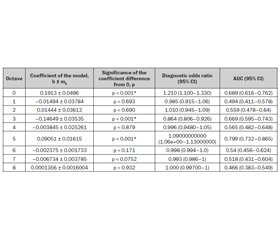Журнал «Здоровье ребенка» Том 18, №4, 2023
Вернуться к номеру
Небажані явища замісної терапії в дітей із дефіцитом гормону росту
Авторы: M. Aryayev, L. Senkivska
Odessa National Medical University, Odesa, Ukraine
Рубрики: Педиатрия/Неонатология
Разделы: Клинические исследования
Версия для печати
Мета: проаналізувати й узагальнити накопичені дані про короткострокову та довгострокову безпеку лікування рекомбінантним гормоном росту людини (рГРл) дітей із дефіцитом гормону росту (ДГР) на основі результатів фізикального обстеження, оцінки життєво важливих функцій, метаболічних параметрів та спостереження. Матеріали та методи. Дослідження проводилося на базі Одеської обласної дитячої клінічної лікарні з 2012 по 2022 рік і включало 92 пацієнтів із ДГР, які отримували лікування рГРл у середній дозі 0,033 мг/кг/добу. Оцінка безпеки такої терапії ґрунтувалася на визначенні загальної частоти небажаних подій (НП) як негативного наслідку медичної допомоги. Результати. При вивченні короткострокової безпеки терапії рГРл за даними фізикального обстеження у 18 (19,6 %) дітей виявлені НП, у тому числі внутрішньочерепна гіпертензія (1), артралгія (1), препубертатна гінекомастія (1), анемія (3), маніфестація прихованої адреналової недостатності (3), прихованої тиреоїдної недостатності (2), порушення толерантності до глюкози (7). У 20,6 (7,0 ÷ 34,2) % дітей із неприйнятною прихильністю до терапії рГРл виявлено болючість ін’єкцій порівняно з 4,3 (–1,6 ÷ 10,2) % дітей із прийнятною прихильністю (χ2 = 5,15; р = 0,02). Жодна дитина не мала таких серйозних небажаних явищ, як прогресування сколіозу, епіфізіоліз головки стегна, набряки, порушення життєво важливих функцій. НП за гематологічними та біохімічними параметрами зазвичай були транзиторними, часто на тлі інтеркурентних захворювань, і не мали зв’язку з прийомом рГРл. У контексті довгострокової безпеки не виявлено зв’язку між терапією рГРл та ризиком онкологічних, кардіологічних та цереброваскулярних захворювань, але 3 дітей (3,26 %) мали цукровий діабет 2-го типу з надлишковою вагою в 1 дитини та ожирінням у 2 дітей. Висновки. У цілому в короткостроковій перспективі терапія рГРл є безпечною в дітей із ДГР. Біль у місці ін’єкції є клінічно значущою НП як когнітивно-емоційний бар’єр прихильності до терапії рГРл. З точки зору довгострокової безпеки терапії рГРл важливим є факт виявлення діабету 2-го типу в 3 (3,26 %) дітей із підвищеною масою тіла та ожирінням.
Background. The purpose was to analyze and summarize the accumulated short-term and long-term safety data in children with growth hormone deficiency (GHD) treated using recombіnant human growth hormone (rhGH) based on the results of a physical examination, assessment of vital signs, laboratory parameters, and follow-up. Materials and methods. The study was conducted at the Odesa Regional Children’s Clinical Hospital from 2012 to 2022, with 92 children treated for GHD using rhGH at an average dose of 0.033 mg/kg/day. The evaluation of the safety of this therapy was based on assessing the incidence of adverse events (AEs) as a negative consequence of medical care. We analyzed both short-term and long-term outcomes. Results. When studying the short-term safety of rhGH therapy according to physical examination data, AEs were found in 18 (19.57 %) children, including intracranial hypertension (1), arthralgia (1), prepubertal gynecomastia (1), anemia (3), manifestation of latent adrenal insufficiency (3), latent thyroid insufficiency (2), impaired glucose tolerance (7). 20.6 (7.0 ÷ 34.2) % of patients with unacceptable adherence to rhGH therapy reported painful injections compared to 4.3 (–1.6 ÷ 10.2) % of children with acceptable compliance (χ2 = 5.15; р = 0.02). None of the children experienced serious adverse events such as scoliosis progression, slipped capital femoral epiphysis, edema, and impaired vital functions. AEs in terms of hematological and biochemical parameters were usually transient, often in combination with intercurrent diseases, and were not associated with rhGH. In long-term safety, there was no association between rhGH therapy and the risk of cancer, cardiac, and cerebrovascular diseases. Still, three children (3.26 %) had type 2 diabetes, with overweight in one case and obesity in two. Conclusions. In general, in the short-term context, rhGH therapy for children with GHD is safe. The pain at the injection site is a clinically significant AE as a cognitive emotional barrier to the adherence to rhGH therapy. From the point of view of the long-term safety of rhGH therapy, the fact that type 2 diabetes was detected in 3 (3.26 %) children with increased body weight and obesity is essential.
діти; рекомбінантний гормон росту людини; безпека
children; recombinant human growth hormone; safety

